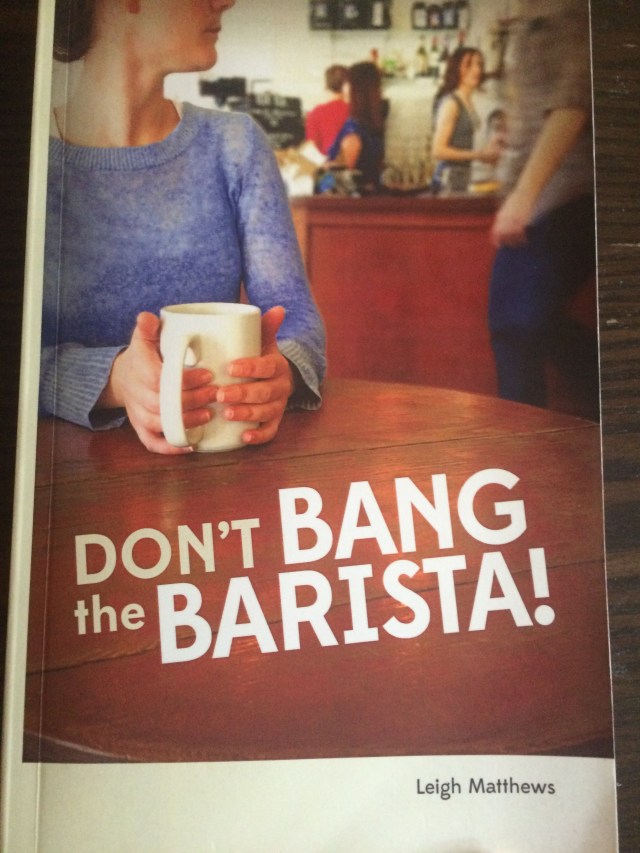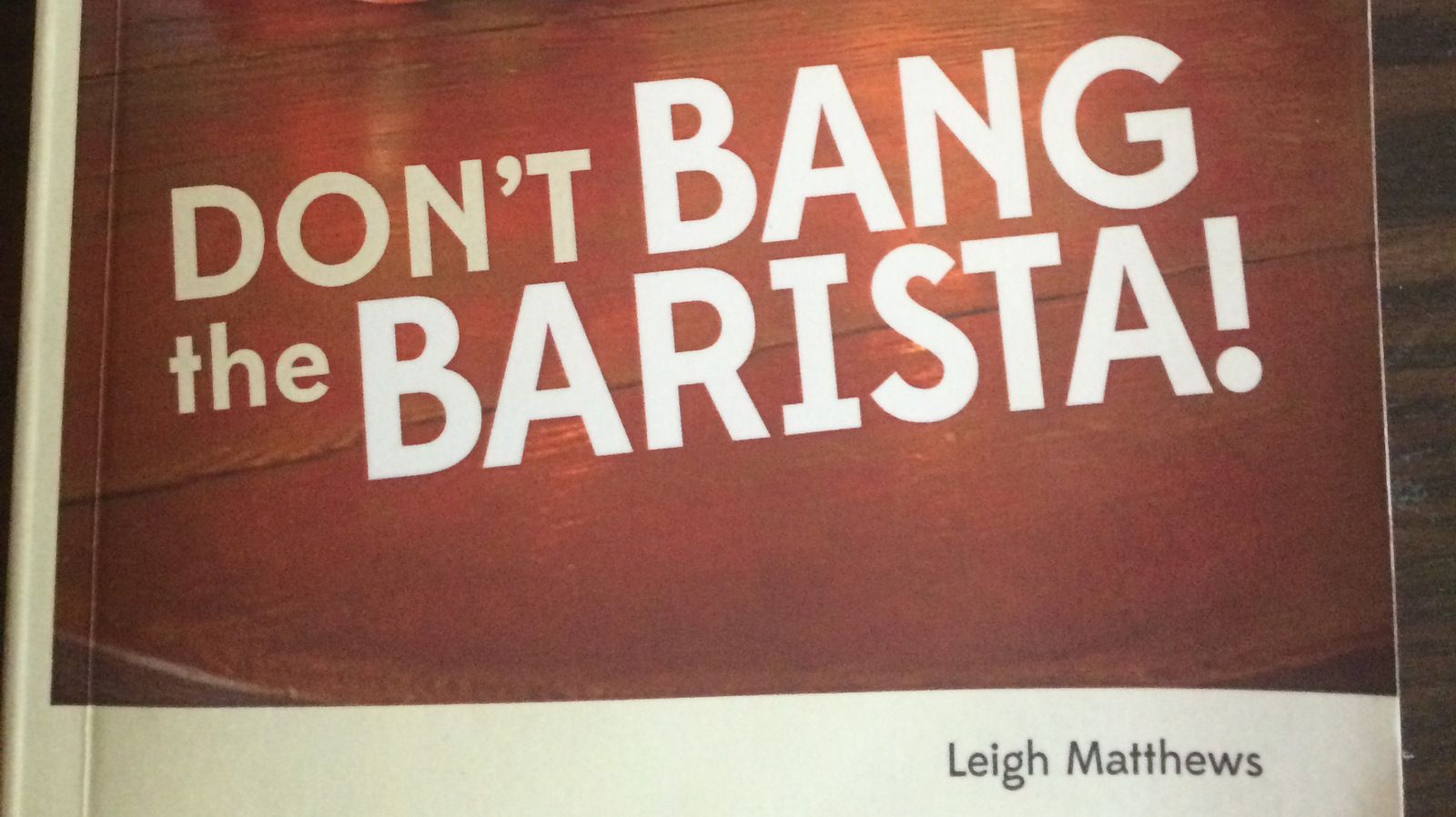Welcome to Hidden Gems of Queer Lit! This column is for those of you who found the first reflections of your desires in a dusty corner of the library, and for those of you who know that important histories and new ways of looking at the world are nestled in yellowed pages as well as flickering screens. Every two weeks I’ll profile a queer lit title that’s outside of the public eye for one reason or another: obscure, small-press, older, aimed at a different niche, or otherwise underrated. It’s my hope that you’ll connect with some of these books and treasure them as I have.

Looking for a readable stocking stuffer for a dear queer or gal pal? Don’t Bang the Barista! is a good bet. It’s a fun, contemporary pulp novel full of drama, crush-worthy girls, and Vancouver subculture.
Kate is a 30-something web designer living in Vancouver and embedded in a queer social circle. She’s crushing on the barista at her favorite coffee shop, but Cass, her bad-girl friend from the dog park, warns her away. (“Kate, honey, you know the first rule of coffee-shop dating…”) But Kate and the barista, Hanna, are intrigued by each other despite the warning. It doesn’t help that Kate’s ex-girlfriend, who she hasn’t quite managed to get over, is back in town and equally interested in reuniting. But could Cass, the supposedly carefree libertine, be holding a candle for Kate? And why can’t Kate stop thinking about her?
Much of the novel’s glee is found in its witty characters, who embody a real sense of “scene.” They partake in Meetup groups, play in bands, knit, and date each other’s exes. There are Kate’s couple-friends, trying to settle into domesticity but fighting like cats and dogs. There’s the bisexual best friend, Em, who Kate looks to as a model of stability, and who suddenly needs support in opening up her opposite-sex relationship. Em’s is a unique subplot that deals with biphobia, poly dating, and changing expectations in relationships. I was really glad to see it in there, as it’s a reality that could use more representation in the book world. As for the protagonists, Cass often behaves like a jerk, and snarky, depressive Kate can be a bit of a mess. Not every reader will approve of their decisions or find their romance believable. There were times I wanted to shake Cass, and yell “Stop doing that!” or “Just communicate already!” But as someone who’s messed up just as badly, and been just as much of a jerk, I also kind of empathized. These characters are as real in their vices as the women in, say, Valencia. Animals also get their stage time: Kate’s omnipresent dog, Jupiter, is a likable character in his own right.
While there are soap-opera touches, such as Kate getting embroiled with one girl one day and another girl the next, there are also flashes of insight that elevate the novel beyond a typical romance. Kate, a British expat, has witty takes on everything from accents — “Yeah, it’s totally sexy not to have any clue what someone is saying to you” — to the relationship between pet ownership and procreation — “You can pretty much guess the age of the Labrador or Golden Retriever by how old the child is running alongside. A two year old toddler, huh? I bet you that dog is three, and a bit disgruntled.” Like any good drama, the plot’s resolution hinges on a series of improbable coincidences. However, there’s enough realism in the characters’ emotions and the minutiae of their lives to make these coincidences work. If smart, well-written theatrics are your thing, you’re in for a fun ride with Don’t Bang the Barista!







